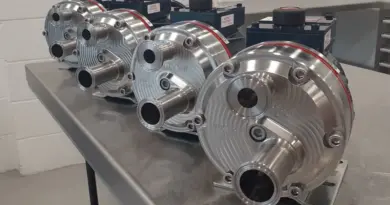eThekwini issues RFI for hydrogen supply chain infrastructure
THE eThekwini Municipality has issued a Request for Information for the development of hydrogen supply chain infrastructure for municipal operations, industrial consumption and the export market.
According to Sbu Ntshalintshali, from the eThekwini metro’s energy office, after the metro launched its regional hydrogen strategy at the energy transformation summit earlier this year, it has been inundated with requests from local and international private companies wishing to develop supply chain infrastructure projects for local consumption and the export market.
He says that eThekwini has been identified as a demand centre by South Africa’s Hydrogen Valley project under the Department of Science and Innovation (DSI).
“However, our implementation approach, based on our hydrogen strategy, is slightly different and is likely to follow the public private partnership (PPP) model and might have a special purpose vehicle (SPV) at the centre.”
Although no current projects in the municipality are earmarked for national funding, Ntshalintshali says that there is cooperation between eThekwini and investors. “Once we have ringfenced shovel-ready hydrogen projects, eThekwini will formally enter partnerships, as recommended by the metro’s Council.”
Highlighting the advantages of eThekwini as an investment destination, Ntshalinthsali says that the metro’s hydrogen strategy is derived from circular economy principles, which is the only approach that makes hydrogen projects bankable. eThekwini Municipality also has sustainable feedstock which will result in a lower cost of supply chain infrastructure deployment.
“Key infrastructure that supports the development of hydrogen and its derivatives already exists – such as transmission and distribution grid access, land availability, port capacity, multiple gas and fuel pipelines, and repurposed oil refineries.
“The Cato Ridge Dry Port has been earmarked for hydrogen industry development due to land availability, liquid fuel storage, renewable energy sources, and ease of access to the country’s main supply chain artery, the N3.”
He adds that just 160 km from eThekwini, in Richards Bay, there is existing port capacity, an Industrial Development Zone (RBIDZ), an ammonia industry, biomass resources, available land and liquid fuel storage capabilities. “The hydrogen industry is an emerging market with great potential to become part of the mainstream economy. There are, however, substantial risks and barriers to entry – such as access to feedstock, high costs, and national government’s complex regulatory framework. With existing infrastructure that can be repurposed, KwaZulu-Natal is in a more favourable position than elsewhere in the country to reach the final investment decision (FID) stage with a project like this.”
Ntshalinthsali says that the municipality has done an extensive benchmarking exercise on the management of hydrogen contracts as a new emerging market. “The rollout will be governed by a PPP model or simple memorandum of understanding (MOU) between the municipality and potential hydrogen investors. The municipality will also investigate establishing appropriate contracts for difference (CfDs) to provide incentives to support the price gap between low-carbon hydrogen and counterfactuals.”
Examples of hydrogen projects in cities in developed and developing nations include the NEOM development in Saudi Arabia which has reached FID. In Italy, the municipal public transport operator, Trasporto Passeggeri Emilia Romagna (TPER), is procuring 140 hydrogen-powered buses and many more projects are in construction across the globe, says Nthsalinthsali.
The RFI can be accessed here




